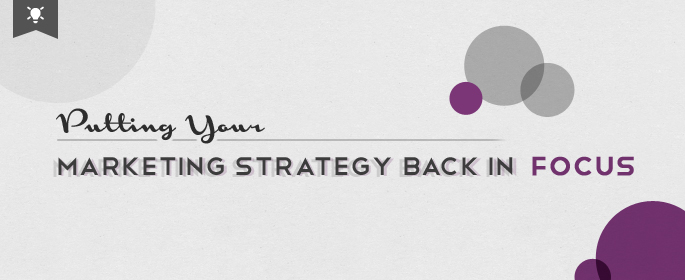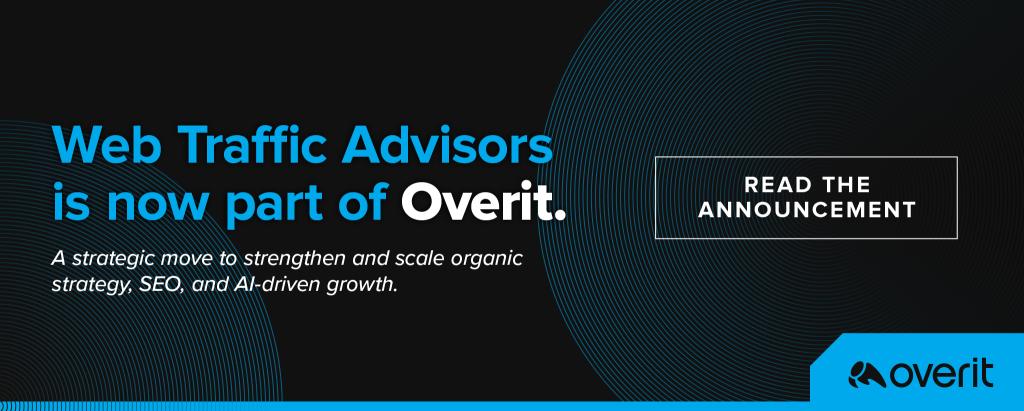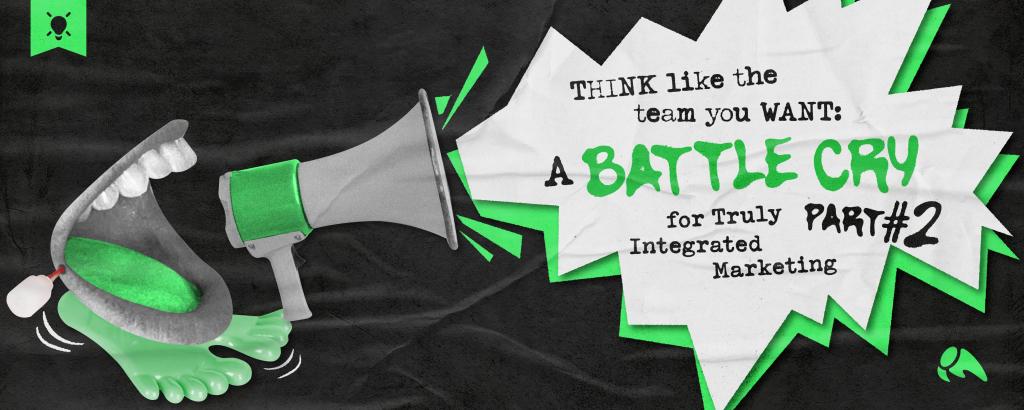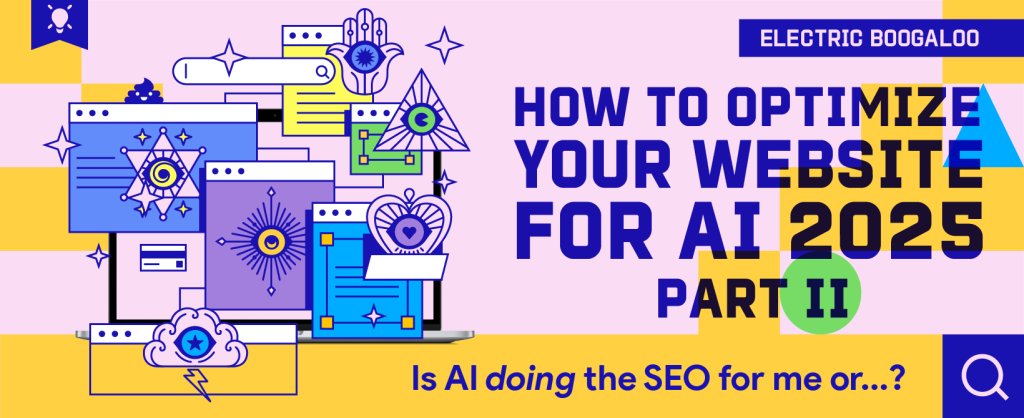
My mother has made it a habit over the years to call and remind me to “look at the moon.” It’s her way of encouraging me to pay attention to what’s around me and to put life back into focus. Now that I am a mom, it’s something I’m trying to instill in my own children. The importance of stopping and noticing the little things.
One of the wonderful things about spending time with our toddler is his fascination with the small things. When you’re four, every detail is a point of wonder. It is something to be celebrated and to experience. As we get older, we lose this, our eyes trained to overlook the everyday in favor of focusing on the latest shiny object.
As marketers, we do the same with our businesses.
Marketing and the Web are moving at lightning pace. In our attempt to keep up, we’re running just as fast. We’re chasing the hottest trends and looking for the flashiest angle to earn us the most attention.
We need to stop. To slow down.
Ask yourself, is fragmented and/or misdirected attention causing you to:
Pay Too Much Vertical Attention
Looking at your competitors to analyze the opportunity that exists, what they’re doing, and how you can be better than them is good. Looking at your competitors because you want to copy what they’re doing is not good.
We often have clients who approach us wanting to do more than just analyze their competitors’ efforts. They want to duplicate their efforts.
I am totally baffled by any company looking to recycle the efforts of their greatest competitors. I’m equally baffled by vertical marketing companies who sell recycled efforts to clients because it’s what they know and where their comfort zone is. As a client, why would you not demand you not only be different from your competitors, but you be better? If you’re not striving for that, what are you striving for?
There is value to knowing your vertical and your industry. But it’s not to take a “one size fits all” mentality to your marketing campaign. It’s to learn from what is already being done, to harvest the small ideas, and to then go beyond them in a way that is different and serves your audience.
If you happen to fit a vertical industry (education, hoteliers, hospitals, tech, entertainment, etc…), I challenge you to talk to a smart non-vertical agency versus one that works with your competitors and demand BETTER.
You Let Go Of Your Inner-SMB
Chasing the latest, biggest thing can cause you to lose your smallness. Regardless of the actual size of your business, acting small can be your biggest competitive advantage in business. Relish your ability to take in small occurrences with customers, competition, and real life experiences and apply them to your business. These are the things that will set you apart and ensure that you’re always aligned with the people who matter most to your business. That you’re moving in the right direction.
In our fight to look bigger or cooler than we are, we often forget that what truly defines a company is the small things. Try relating to people, connecting. It matters.
If you feel yourself getting swept up into today’s hottest trends and tomorrow’s biggest clichés, stop and ask:
- How do you differentiate yourself?
- How do you compete?
- How do you emphasize the importance of your offerings?
- How are you building relationships?
These are the things that matter most and deserve true attention. . They’re also the things we lose first when we stop thinking in our business and start focusing outside of it.
Lose Your Innovation
You can’t innovate looking sideways. You’re so tied to what everyone else is doing you forget how to think for yourself or even that you should be thinking off yourself.
When you stop innovating, you stop asking questions. You go into every project with blinders on. You may be able to dictate a need, but you don’t see the possibilities. There’s no time to pause and reflect on the why or the how, only the manic push forward. When this happens, you’re not even tapping into the value of a smart agency. You don’t just need a website when you come to us. You need much more than that. You need strategy. You need thought.
So what do you do?
How do you bring your strategy back in focus?
Be a thinker. And hire other thinkers.
It’s great to say you need video on your site. Super, in fact. You are right on point, video is a smart investment. But what are you doing with that video? Do you have that strategy? Is it differentiating you? Is it of actual interest to your desired audience? Does it align with your goals and desired ROI? That’s what you need to be thinking about….for starters.
Don’t get distracted by what your competitors are doing. Stay your own unique course and continue to brand yourself that way. Ask questions and demand real answers. Follow your ROI.
Our son Braydon asked me tonight what in our house was wood. He was insistent that this piece of knowledge was critical to him meeting his bedtime.
He is 4, when he is 18, if I remind him our house is made of wood, I expect he’ll tell me “duh.” But for now, I was the one with the knowledge.
Without thinking about the paintings on our walls, the rock posters in his room, the antiques abound, the molding, the furniture, what does he see as wood? His eyes widened until he fell asleep. It was a lot to process. What a cool conversation.
I plan to take those conversations and apply them. At Overit-with clients- and life.
How do you ensure that your marketing strategy remains in focus? Any cures for the Shiny Object Syndrome running rampant in today’s culture?







